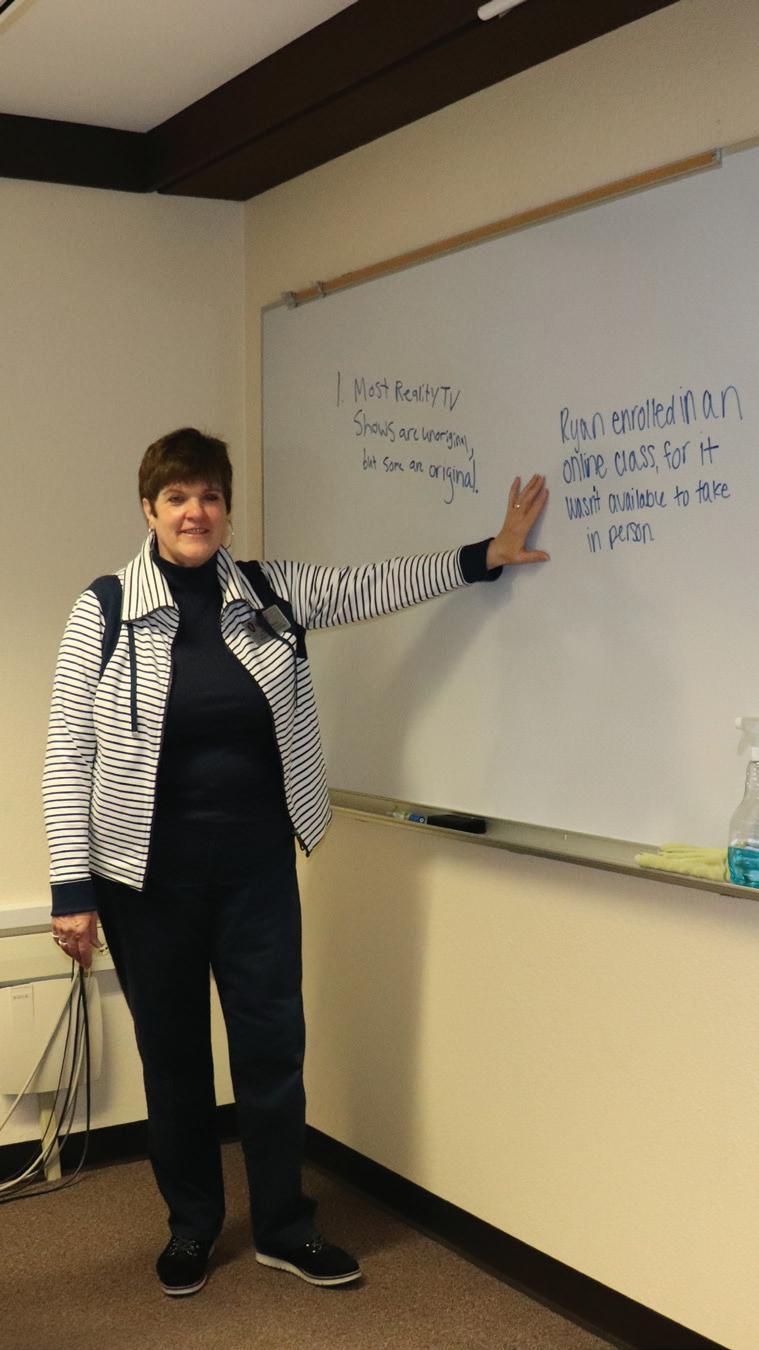
3 minute read
Women in criminal justice workforce
by Bonnie Hall IV Leader Staff
On Wednesday, March 29 at 2 p.m. in C-316, a panel with female professionals in the criminal justice field took place to celebrate Women’s History Month.
Advertisement
cer someday. My main goal was to do something to make a difference in someone’s life.” problems. themselves as soldiers, but to get a sense of what life was like to live in a country where you're not constantly living in fear," Cook Fesperman explained.
"A lot of African Americans didn't want to come home because [in Europe] they could go places. People didn't spit on them, and threaten to kill them, and beat them."
According to Cook Fespermen, the women of the 6888th were not given proper recognition until 2009, when they were honored during an event at Arlington National Cemetery.
Cook Fesperman also shed light on other often unrecognized women who contributed to wars throughout all of American history.
Some of these women included Margaret Corbin and Deborah Sampson, who disguised themselves as men to fight on the front lines in the American Revolution; Clara Barton and Dorothea Dix, who were nurses during the Civil War; and Cathay Williams, the first known African American woman to enlist in the military.
An audience member in attendance also mentioned that, in World War II, women tested new planes that men felt were unsafe to fly.
To learn more about the 6888th, Cook Fespermen suggests reading Sisters in Arms, a historical fiction book about the unit, written by Kaia Alderson.
Featured speakers on the panel included Peru Police Officer Randy Lenninger, who is also IVCC’s School Resource Officer, Criminal Justice instructor Jenny Bursell, Peru Police Detective Amy Sines, and Peru Police Dispatcher Cristie Degroot.
The speakers were asked a plethora of questions, ranging from how they got their start in the criminal justice field to what their experience as a woman in that field entailed.
Female audience members interested in pursuing careers in criminal justice, were able to fain valuable perspectives and knowledge to help with their future career paths.
When the speakers were asked how they knew they wanted to be in the criminal justice field, the most common theme in their answers was wanting to help people and their community.
Officer Lenninger responded by stating, “As a little kid, I decided I was going to be a police offi-
Detective Sines replied to the question by saying, while her initial intention was to become an attorney, after taking some criminal justice classes, falling in love with the field, and especially after having an unpleasant experience with a police officer, she knew she had to rise to the challenge.
She said, “I wanted to make sure I did everything I possibly could so that it didn't happen to anyone else. I decided I’d step up and take that role.”
Later in the panel, the speakers were asked if they faced any difficulties being women in their fields. The audience in the room was very attentive and listened closely to the advice these women gave.
Instructor Bursell stated, “I feel like being female is a positive thing that the departments are looking for. We have tons of females working in the system, which wasn’t the norm 20 years ago. I think it’s a really good time for you ladies to get in the field.”
She said, however, in situations where a fight breaks out, she felt as though the men were expecting her to get them to restrain the individual when it was something she could handle on her own. Fortunately, after she proved herself, she didn’t face any
Dispatcher Degroot had a similar answer, replying, “As far as gender goes, once you establish yourself with your coworkers and they know they can count on you, I feel as though we’re at an age where we’re lucky gender doesn’t play as big of a role as it used to. The hardest thing is that you still have an older generation that looks down upon women in authoritative positions.”
Detective Sines added to this by saying, in her almost 20 years of service, she has seen that being female is a strength.
Thanks to Officer Randy Lenninger, instructor Jenny Bursell, Detective Amy Sines, and Dispatcher Cristie Degroot, female IVCC students could gather new perspectives on the profession and new information they can use to further their career paths.









